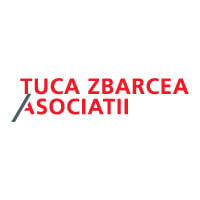

General counsel | Zitec



Alina Dinu
General counsel | Zitec
Team size: Four
How do you approach managing legal aspects during periods of instability or crises in Zitec, and how does your legal strategy align with the broader business strategy to ensure the organisation’s resilience?
Managing legal aspects during periods of instability or crises at Zitec requires a proactive and strategic approach, ensuring alignment with the organisation’s broader business objectives to maintain resilience. The process begins with a comprehensive risk assessment, identifying potential legal vulnerabilities that may arise during crises and ensuring compliance with any new laws or emergency measures. This foundational step allows the organisation to anticipate and mitigate risks effectively.
A robust crisis management plan forms the backbone of the strategy. This includes preparing for scenarios such as data breaches or contract disputes and designating a legal team to lead crisis responses, ensuring communication is clear and streamlined throughout. Collaboration is key, as the legal team works closely with other departments, such as HR, finance, and operations, forming a cross-functional task force to ensure that all perspectives are considered when addressing challenges.
Contract review and flexibility are essential during unpredictable times. By analysing agreements for force majeure, termination, and modification clauses, the legal team can better understand liabilities and negotiate adaptability to navigate evolving circumstances. Alongside this, an effective communication strategy is implemented, providing clear and consistent legal updates to employees, customers, and investors, and offering pre-prepared templates to address common legal concerns swiftly.
Training plays a pivotal role in equipping employees to handle legal challenges. Through sessions focused on compliance, data protection, and crisis management, Zitec fosters a culture of awareness, empowering employees to recognise and report potential risks. Simultaneously, the legal team remains vigilant, monitoring legal developments and adapting strategies to meet changing regulatory requirements. To ensure the legal response complements Zitec’s overall goals, strategies are tightly integrated with the broader business strategy. Legal insights are used to balance risks and opportunities, supporting growth, innovation, and market positioning even during uncertain times. Following the resolution of a crisis, a post-crisis evaluation is conducted to assess the effectiveness of the legal response. This audit allows the organisation to identify lessons learned and refine strategies for future challenges.
By adhering to these principles, Zitec’s legal strategy not only safeguards the organisation during crises but also ensures resilience, adaptability, and alignment with its long-term business objectives.
What emerging technologies do you see as having the most significant impact on the legal profession in the near future, and how do you stay updated on these developments?
Emerging technologies are set to revolutionise the legal profession, transforming traditional practices and introducing unprecedented efficiencies. Among the most impactful developments is effective AI which streamlines tasks like document review and e-discovery. AI tools not only increase efficiency but also reduce costs, while predictive analytics enable lawyers to assess case outcomes and devise strategies with greater precision.
Blockchain technology is another game-changer, offering the potential to revolutionise transactions and record-keeping. Smart contracts, for example, automate processes and minimise the need for intermediaries, while the transparency and security of blockchain ensure trustworthy and immutable legal records. Additionally, legal tech platforms are enhancing the day-to-day operations of law firms. Case management software optimises workflows and improves client management, while Online Dispute Resolution (ODR) platforms make legal processes more accessible by facilitating remote conflict resolution.
In an era of increasing digital threats, cybersecurity solutions have become indispensable. Tools that protect sensitive client data and ensure compliance with regulations, such as GDPR, are critical for maintaining trust and avoiding breaches. To stay abreast of these transformative trends, professionals in the legal field adopt a multifaceted approach. Regular engagement with industry publications and legal tech blogs provides insights into the latest innovations. Webinars and conferences offer firsthand knowledge from experts, while professional associations provide valuable resources, networking opportunities, and updates on emerging trends. Lastly, connecting with tech professionals fosters an understanding of innovations that are shaping the industry.
By embracing these strategies, legal professionals can remain at the forefront of technological advancements and leverage them to drive efficiency, accessibility, and security within the legal sphere.
General counsel | Zitec